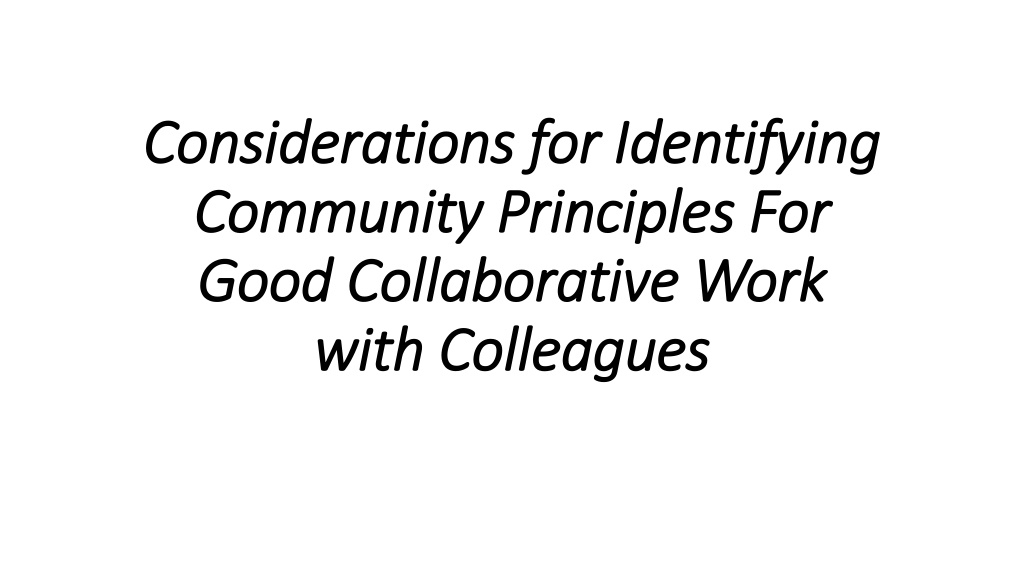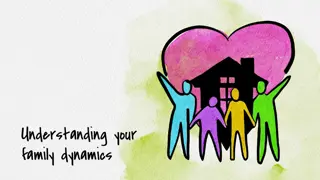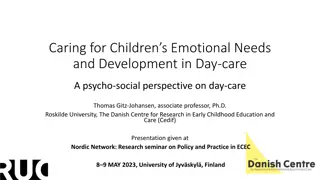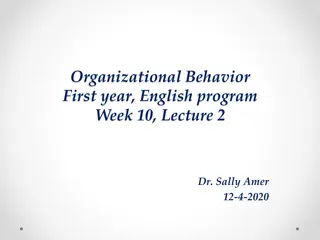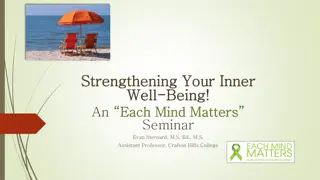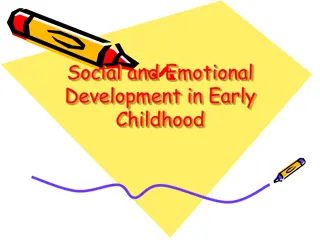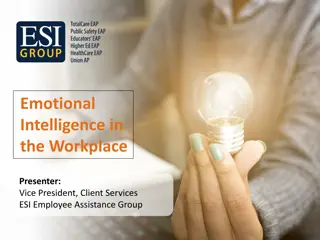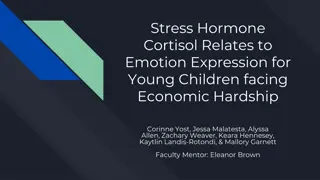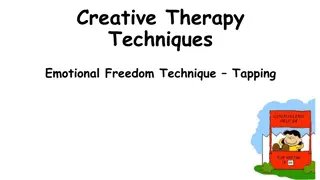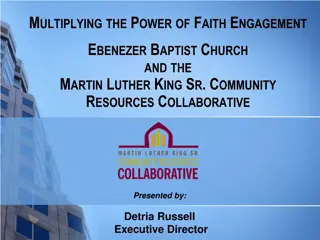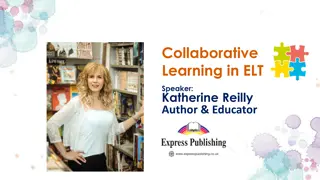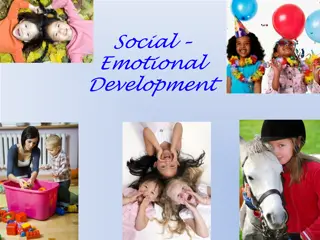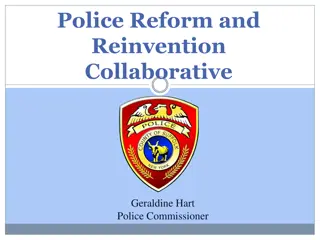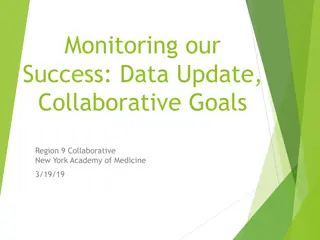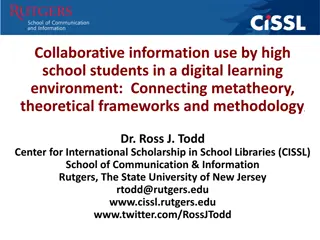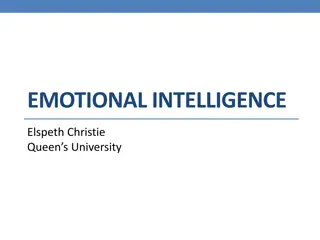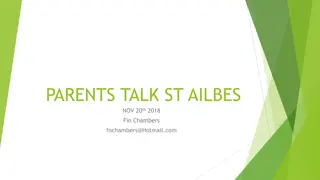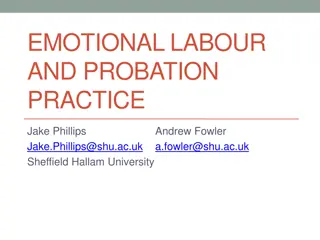Understanding Emotional Needs in Collaborative Work
Emotional needs play a crucial role in academic relationships and collaborative work. Vulnerabilities arising from past experiences can impact learning and hinder productive academic relationships. Recognizing and responding appropriately to bids from colleagues is essential to fostering a supportive work environment. Dismissing emotions can lead to turning away responses, affecting collaboration negatively.
Download Presentation

Please find below an Image/Link to download the presentation.
The content on the website is provided AS IS for your information and personal use only. It may not be sold, licensed, or shared on other websites without obtaining consent from the author. Download presentation by click this link. If you encounter any issues during the download, it is possible that the publisher has removed the file from their server.
E N D
Presentation Transcript
Considerations for Identifying Considerations for Identifying Community Principles For Community Principles For Good Collaborative Work Good Collaborative Work with Colleagues with Colleagues
Ingredients for Building Academic Relationships Emotional Needs Are Connected to Learning Needs Our needs in teaching are tied to emotional needs. Being successful in teaching is one way that teachers learn to feel better about themselves. However, emotional needs are different for each person and at various ages. These needs are shaped by experiences both out of and in school with both students and peers. Painful events or relationships can cause experiences in a teacher s life that can create an enduring vulnerability.
These vulnerabilities can affect learning and often create a barrier to forging a productive academic relationship. Some of the injuries that can create this type of vulnerability include: Not having enough control Being controlled or coerced Being excluded Being unfairly treated Being betrayed Being ignored or neglected Being disrespected Being abused or humiliated Not being accepted Being rejected Not receiving affection or signs of affection
Think about the comments that we make in collaborative work and what they mean to us
Think about the comments that we make in collaborative work as bids for _________. Comments in collaborative work are bids for: What words could you put in this space that reflects what you think. List your words in the right column.
Some Responses to Bids Will Turn Colleagues Away or Against You If you dismiss emotions with responses such as get over it or cheer up, this is a Turning Away response that leads to less bidding. Turning Away responses to colleagues bids can send the message: I don t care about your bid. I want to avoid your bid. I am not interested in your interests. I ve got more important things on my mind. I m too busy to pay attention to your bid. Your bid is not worth my time.
Some Responses to Bids Will Turn Others Away or Against You If you dismiss emotions with responses such as get over it or cheer up, these are Turning Away responses that leads to less bidding. Turning Away responses to colleagues bids can send the message: I don t care about your bid. I want to avoid your bid. I am not interested in your interests. I ve got more important things on my mind. I m too busy to pay attention to your bid. Your bid is not worth my time.
When the bids of colleagues are ignored or rejected by Turning Away or Turning Against responses, they will gradually stop trying to connect. Continuous use of Turning Away responses can eventually destroy a relationship. Even though a colleague may not immediately show hurt or anger by a Turning Away response from another colleague. We tend to keep score of these responses, and we will eventually begin to overtly criticize or become defensive and the collegial relationship will disintegrate.
Some Responses To Bids Will Turn Colleagues Toward You Turning Toward responses show interest and openness to the student s bid and a willingness to work with the student. If you use laissez-fare responses such as I understand how you feel , this is a Low LevelTurning Toward response that does not provide guidance for coping with an emotional need. This type of response may or may not lead to more bidding from another. If you can coach emotions with statements such as I think I understand how you feel; let me help you, this is a High Level Turning Toward response that provides guidance for coping, and this is likely to lead to more bidding and more communication.
If you disapprove of emotions with responses such as "you shouldnt feel that way or you better change your attitude, this is a Turning Against response that leads to less bidding. Turning Against responses to bids can send the message: Your need for attention makes me angry. I feel hostile toward you. I don t respect you. I don t value you or this relationship. I want to hurt you. I want to drive you away.
High Level Turing Toward responses to colleagues bids can send the message: I hear you. I am interested in you. I understand you (or would like to). I m on your side. I d like to help you (whether I can or not). I like working with you (whether I can or not). I accept you (even if I don t accept all your behaviors).
When you remain consistent and positive with Turning Toward responses in the face of bids that are negative, careless, or even hostile, this serves as a model for how to handle a relationship and, in time, you should see others Turning Toward you more often. John Gottman argues that progress is possible at any point in a relationship if one colleague starts Turning Toward a another colleague s bid for connection on a consistent basis. It may require tremendous patience to recognize and respond in a positive manner to a colleague who seems resistant or not to care. However, a commitment to Turning Toward responses can earn the trust of others and their willingness to connect.
When you respond, avoid Turning Away and Turning against responses. Try to use attentive and high energy Turning Toward responses. Figure 2. Three Ways to Respond to Bids (Gottman, 2001) Turning-Toward Responses Turning-Away Responses Turning-Against Responses How responses might appear Nearly passive: Uh-huh Low-energy: Okay Sure Attentive: Validation, Opinions, Thoughts, Feelings Questions High-energy: Enthusiasm, Empathy More bidding and responding, growth of relationship Preoccupied: No response Disregarding: Irrelevant response Interrupting: Unrelated response Contemptuous: Insults, sarcasm Belligerent: Combative Contradictory: Argumentative Domineering: Controlling Critical: Character attacks Defensive: Feigning helplessness How responses can affect relationships Less bidding, increased conflict, hurt feelings, relationship ends Less bidding, avoidance of conflict, suppressed feelings, relationship ends
Comments that can encourage collegial communication may be characterized by the following: Honors confidentiality Treats others with respect Follows through on promises Indicates real interest in students as people Jokes in made when working are not at anyone s expense Shows ability to laugh at oneself Connects with others individually (e.g., eye contact, discussions during and outside of work, etc.) Ensures equitable treatment while respecting differences Checks and clarifies understanding Demonstrates subject matter competency and a zest for teaching and learning Shows flexibility in dealing with individual differences and rules when possible
Conversely, colleagues can discourage trust by the written and oral comments they make. Actions and comments that can discourage collaborative communication can be characterized by the following: Discloses confidential information to others without permission Uses sarcasm Breaks promises or changes plans without explanations Makes fun or belittles another Indicates lack of preparedness or knowledge Does not address the concerns of others Avoids the issues Shows inflexibility regarding rules Indicates impatience or disinterest
Community Principles: Open Respectful Professional (What is professional?) Contributes Honest Patient Caring Supportive Kind Reinforcing Brave Forgiving Community Principles What will be the culture of our group work? What our community principles?
